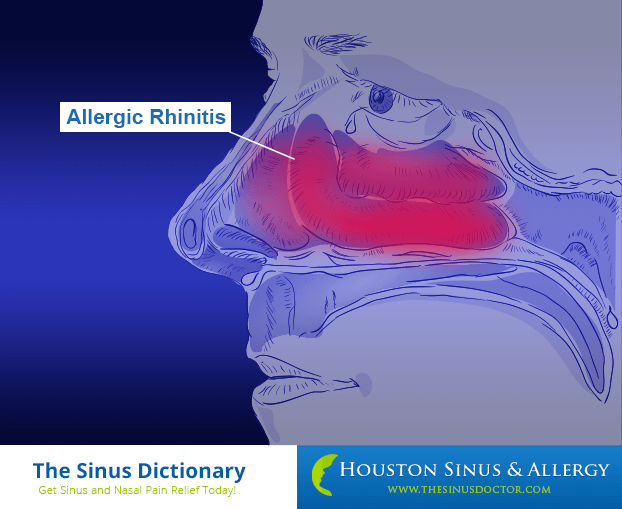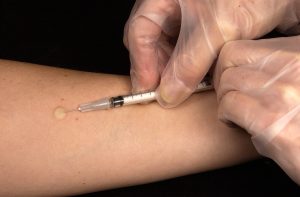Every year, millions of Americans seek treatment for allergic reactions to substances such as mold, dust, pollen, and pet dander. According to the AAFA, about 50 million Americans suffer from all types of allergies. For example, figures from the American Academy of Allergy Asthma & Immunology show that 7.8% of Americans 18 years and over suffer from allergic rhinitis.

What is an Allergy Shot?
An allergy shot is essentially an injection that doctors administer to people who are sensitive to allergens. However, this is a simple allergy shot definition and it is important to note that it does not cure allergic reactions. It simply reduces sensitivity to allergens.
What is Immunology?
Immunology or immunotherapy is a form of treatment used to reduce symptoms associated with allergic asthma, allergic rhinitis, and eye allergy, with the aim of rehabilitating and strengthening the immune system against allergens. Immunotherapy typically involves the administration of allergy shots over a given period to make the body less sensitive to allergens.
How Allergy Shots Work
Allergy shots work in the same way as vaccines. Patients undergo proper screening and evaluation of symptoms before starting treatment to identify factors that trigger their allergic reactions. After this, doctors start treatment, which generally involves the administration of increasingly higher doses of actual allergens. However, these shots contain small amounts of allergens that cannot trigger a full-blown allergic reaction. Your physician will increase the amount of allergens in each shot over time to help your immune system build tolerance to allergens.
What to Expect at the Doctor’s Office
Your doctor will evaluate your medical history to determine the factors responsible for your adverse reactions to allergens. In addition, the doctor may carry out a skin test, which would involve scratching the surface of your skin and applying an allergen at the same spot. Swelling and redness at this spot indicates that you are allergic to the applied substance.
Physicians usually administer allergy shots in the upper arm. Depending on the treatment schedule your doctor adopts, you may have to return for another shot once or thrice every week for up to six months.

Effectiveness
Immunotherapy is quite effective at reducing symptoms of various allergies. In fact, James LI, MD, of the Mayo Clinic states that allergy shots are more effective than medications such as antihistamines. Nevertheless, many people in the USA do not go for allergy shots. Instead, they opt to suffer in silence or go for medications such as antihistamine pills. Figures from a survey carried out by the American College of Allergy, Asthma and Immunology (ACAAI) show that two in three people who suffer from allergies never go for allergy shots.
Risks
Some people may experience adverse reactions after taking allergy shots. One serious side effect is anaphylaxis, which causes breathing problems and low blood pressure. A patient can experience anaphylaxis 30 minutes after receiving an allergy shot. Other potential negative side effects include nasal congestion, swelling of the injection site, throat swelling, chest tightness, hives, and wheezing. If you experience any of these symptoms, call your allergy doctor asap.
In summary, many people who are allergic to pollen and dust fear going out during the summer season. Fortunately, an allergy shot can solve this problem. It is important to note that allergy shots generally take some time to work. In fact, it could take up to three years to desensitize your body to allergens.

